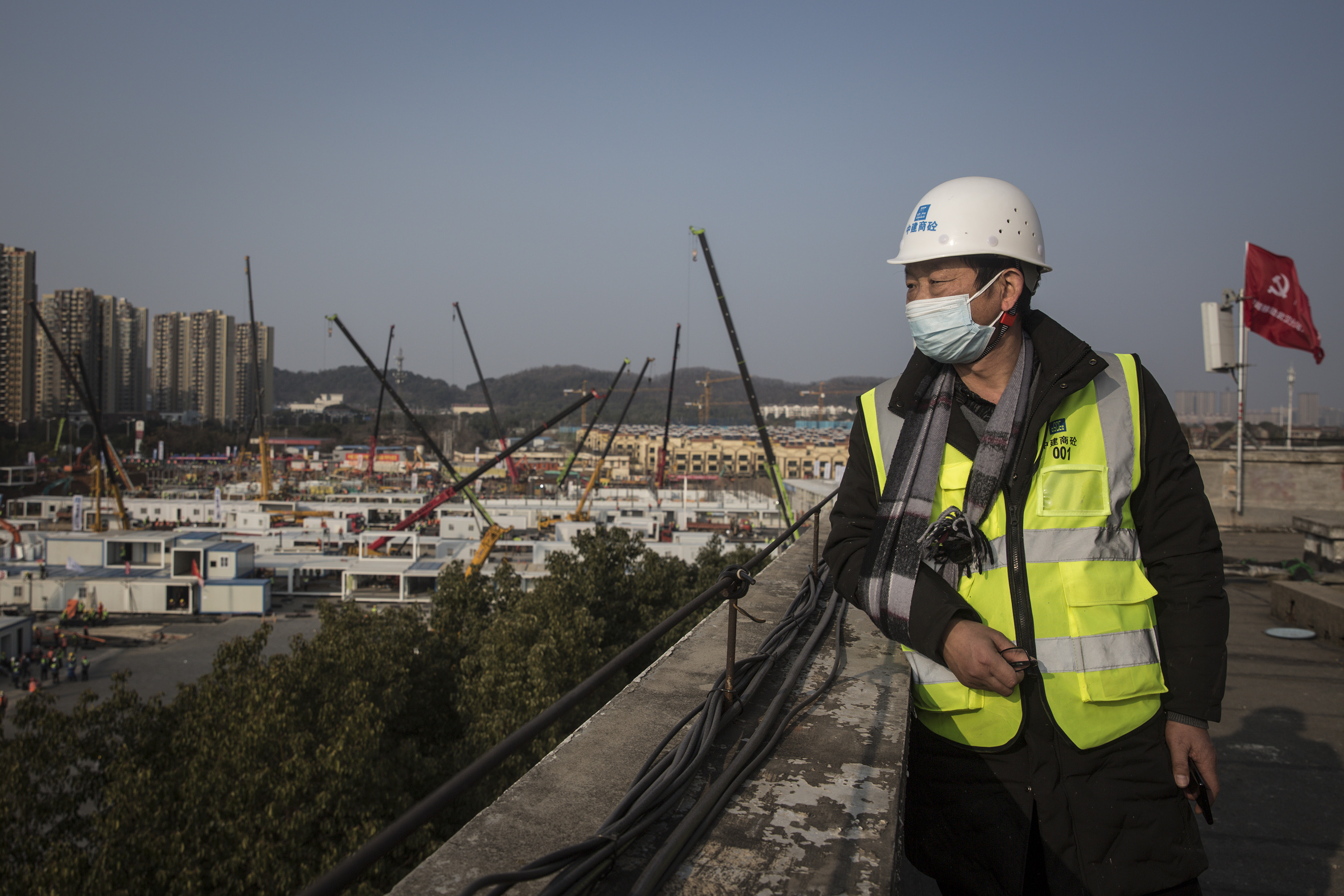Is China’s slow response to blame for the coronavirus outbreak?
State led controls on information may have hampered efforts to curb spread of disease


A free daily email with the biggest news stories of the day – and the best features from TheWeek.com
You are now subscribed
Your newsletter sign-up was successful
The Chinese government was too slow to respond to the coronavirus, silencing doctors and potentially aiding its spread, according to reports.
The disease has now claimed over 300 lives worldwide, according to the BBC, including a man in the Philippines whose death was the first outside China.
More than 14,380 people have been infected, with some of the world’s leading experts now saying there are signs that a pandemic is imminent.
The Week
Escape your echo chamber. Get the facts behind the news, plus analysis from multiple perspectives.

Sign up for The Week's Free Newsletters
From our morning news briefing to a weekly Good News Newsletter, get the best of The Week delivered directly to your inbox.
From our morning news briefing to a weekly Good News Newsletter, get the best of The Week delivered directly to your inbox.
“It’s very, very transmissible, and it almost certainly is going to be a pandemic,” Dr. Anthony Fauci, director of the National Institute of Allergy and Infectious Disease, told The New York Times. “But will it be catastrophic? I don’t know.”
Did China respond too slowly?
According to The New York Times, “authorities silenced doctors and others for raising red flags” during the crucial seven weeks between the first symptoms of the virus in early December, and the government’s decision to lockdown Wuhan in January.
“They played down the dangers to the public, leaving the city’s 11m residents unaware they should protect themselves,” the paper reports.
A free daily email with the biggest news stories of the day – and the best features from TheWeek.com
Based on interviews with two dozen Wuhan residents, doctors and officials, on government statements and on Chinese media reports, the paper concludes that the Chinese goverment “delayed a concerted public health offensive”.
“By not moving aggressively to warn the public and medical professionals, public health experts say, the Chinese government lost one of its best chances to keep the disease from becoming an epidemic,” the paper reports.
According to Reuters, Chinese authorities also assured citizens in the days after the virus had first been identified that it was not widely transmissible.
This advice came despite “the lack of reliable data and testing capacity in Wuhan” and meant “city managers had little incentive to escalate problems to political superiors”, the news agency reports.
At the same time, the Chinese government also “censored negative online commentary about the situation, and arrested eight people it accused of being ‘rumour spreaders’”.
Why was the response delayed?
According to the Financial Times: “Part of the reason for the tightly controlled release of information was that Wuhan, a provincial capital, was hosting annual meetings of the top municipal and provincial officials from January 7 to 17.”
Dali Yang, an expert on Chinese bureaucracy at the University of Chicago, told the FT that the conference was a “major factor” in authorities attempts to “project an air of calm and most likely delayed taking action to stop the spread of the Wuhan coronavirus”.
“Local and central government officials are facing a growing wave of public anger over the handling of the new coronavirus,” reports The Guardian.
“On Sunday, state media reported that 337 party officials in Hubei had been ‘punished’, including six county-level officials who had been fired.”
William Gritten is a London-born, New York-based strategist and writer focusing on politics and international affairs.
-
 House votes to end Trump’s Canada tariffs
House votes to end Trump’s Canada tariffsSpeed Read Six Republicans joined with Democrats to repeal the president’s tariffs
-
 Bondi, Democrats clash over Epstein in hearing
Bondi, Democrats clash over Epstein in hearingSpeed Read Attorney General Pam Bondi ignored survivors of convicted sex offender Jeffrey Epstein and demanded that Democrats apologize to Trump
-
 Are Big Tech firms the new tobacco companies?
Are Big Tech firms the new tobacco companies?Today’s Big Question Trial will determine if Meta, YouTube designed addictive products
-
 Epstein files topple law CEO, roil UK government
Epstein files topple law CEO, roil UK governmentSpeed Read Peter Mandelson, Britain’s former ambassador to the US, is caught up in the scandal
-
 Iran and US prepare to meet after skirmishes
Iran and US prepare to meet after skirmishesSpeed Read The incident comes amid heightened tensions in the Middle East
-
 Israel retrieves final hostage’s body from Gaza
Israel retrieves final hostage’s body from GazaSpeed Read The 24-year-old police officer was killed during the initial Hamas attack
-
 China’s Xi targets top general in growing purge
China’s Xi targets top general in growing purgeSpeed Read Zhang Youxia is being investigated over ‘grave violations’ of the law
-
 Panama and Canada are negotiating over a crucial copper mine
Panama and Canada are negotiating over a crucial copper mineIn the Spotlight Panama is set to make a final decision on the mine this summer
-
 Why Greenland’s natural resources are nearly impossible to mine
Why Greenland’s natural resources are nearly impossible to mineThe Explainer The country’s natural landscape makes the task extremely difficult
-
 Iran cuts internet as protests escalate
Iran cuts internet as protests escalateSpeed Reada Government buildings across the country have been set on fire
-
 US nabs ‘shadow’ tanker claimed by Russia
US nabs ‘shadow’ tanker claimed by RussiaSpeed Read The ship was one of two vessels seized by the US military
